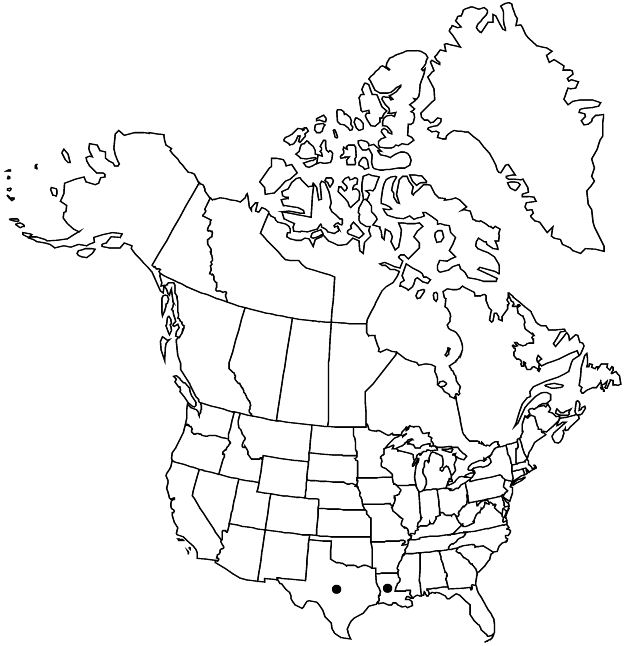Difference between revisions of "Euphorbia helleri"
Bot. Gaz. 26: 268, fig. [p. 270]. 1898.
FNA>Volume Importer |
imported>Volume Importer |
||
| (2 intermediate revisions by 2 users not shown) | |||
| Line 51: | Line 51: | ||
|publication year=1898 | |publication year=1898 | ||
|special status= | |special status= | ||
| − | |source xml=https:// | + | |source xml=https://bitbucket.org/aafc-mbb/fna-data-curation/src/2e0870ddd59836b60bcf96646a41e87ea5a5943a/coarse_grained_fna_xml/V12/V12_899.xml |
|genus=Euphorbia | |genus=Euphorbia | ||
|subgenus=Euphorbia subg. Esula | |subgenus=Euphorbia subg. Esula | ||
Latest revision as of 19:18, 5 November 2020
Herbs, annual, with taproot. Stems ascending, branched proximally, 15–30 cm, glabrous. Leaves: petiole usually 1–3 mm, absent distally; blade spatulate, 6–15 × 3–5 mm, base broadly attenuate, margins entire, apex usually obtuse to rounded, sometimes retuse, surfaces glabrous; venation pinnate, midvein prominent. Cyathial arrangement: terminal pleiochasial branches 3, each 1–5 times 2-branched; pleiochasial bracts oblong, similar in size to distal leaves; dichasial bracts distinct, orbiculate-ovate to nearly reniform, subpandurate, base broadly cuneate to truncate, margins entire, apex obtuse, mucronate; axillary cymose branches 0–5. Cyathia: peduncle 0.2–0.4 mm. Involucre campanulate, 0.9–1.2 × 0.7–1 mm, glabrous; glands 4, elliptic, 0.1–0.2 × 0.3–0.4 mm; horns slightly divergent, 0.1–0.2 mm. Staminate flowers 8–10. Pistillate flowers: ovary glabrous; styles 0.4–0.5 mm, 2-fid. Capsules depressed-globose, 2.1–2.5 × 2.5–3 mm, 3-lobed; cocci flattened, smooth, glabrous; columella 1.2–1.7 mm. Seeds white to light gray, ovoid, 1.4–1.6 × 1–1.2 mm, smooth; caruncle 2-lobed, thin, 0.4 × 0.7 mm.
Phenology: Flowering and fruiting late winter–spring.
Habitat: Forests, stream banks, roadsides, shaded areas with sandy, calcareous soils.
Elevation: 0–50 m.
Distribution

La., Tex., Mexico (Nuevo León).
Discussion
The smooth, white to light gray seeds of Euphorbia helleri easily distinguish it from other annual members of subg. Esula in North America. Collections of E. helleri have been made near Brownsville, Texas, and thus it is possible that the species occurs in northern Tamaulipas, Mexico. The Louisiana record (Webster Parish) likely represents introduced plants.
Selected References
None.